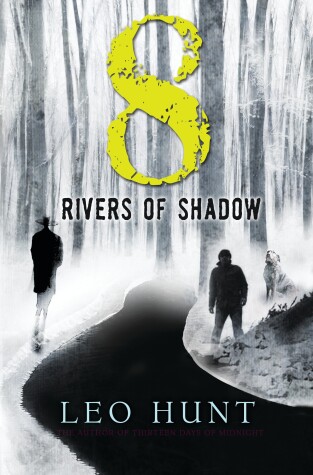After the events of Thirteen Days, Leo Hunt was in the perfect position to develop Luke Manchett’s character in a way that would help him discover his power in a world where magic and Necromancy exist. Instead, Luke bumbles his way through his new found powers relying on everyone around him who appears to be more capable than him on almost every single level. The idea of Necromancy is such a great premise and one that’s been pretty under-utilised in genre fiction that this could have made the book about a thousand times more interesting! Luke has these powers, but what do they mean, how do they develop, how can he harness them for good, evil, anything? These questions weren’t asked in the first book, and while Eight Rivers does raise some interesting moral questions, they are outside of the bounds of Luke’s newfound skills.
My main issue with Eight Rivers of Shadow is that we are given characters that we already know from the first book in the series, and yet they are simply not developed any further. The lives of Hunt’s characters remain largely static and most of the plot’s development seems to rely wholly on Luke being completely inept and slightly stupid. This issue is exemplified once more in one of the biggest criticisms I had about Thirteen Days and that is the complete lack of adult supervision in these novels. Parents are either just rubbish at parenting or completely absent during the whole series creating a world where it essentially feels there are no adults around. While this can be an interesting plot device as we’ve seen in books like Michael Grant’s Gone series, it is painfully clear that Leo Hunt has not put this in to his narrative intentionally. Instead he’s tried so hard to create a realistic teenaged boy who his readers can relate to, but instead created a limbo world that neither adults nor young adults will feel any kinship.
From a pacing perspective the bland and lifeless characters make it pretty difficult to invest in the plot in any kind of meaningful way. This book should have been an easy read, but I felt myself so poorly invested in its narrative that three weeks later and I’d barely grazed 75%. It wasn’t that I didn’t enjoy myself when I was reading it in at least a superficial way, I just didn’t feel motivated to make the time to pick it up.
Ultimately I think Eight Rivers of Shadow didn’t differentiate itself in plot and scope enough from the first book in the series. It felt pretty same, only without developing anything. As far as YA literature goes there are numerous better books out there. This one wasn’t bad, but it wasn’t good enough for me to want to recommend it to anybody. Reading it was an entirely ambivalent experience, as is its memory.
This review is also available on my blog, I Blame Wizards
